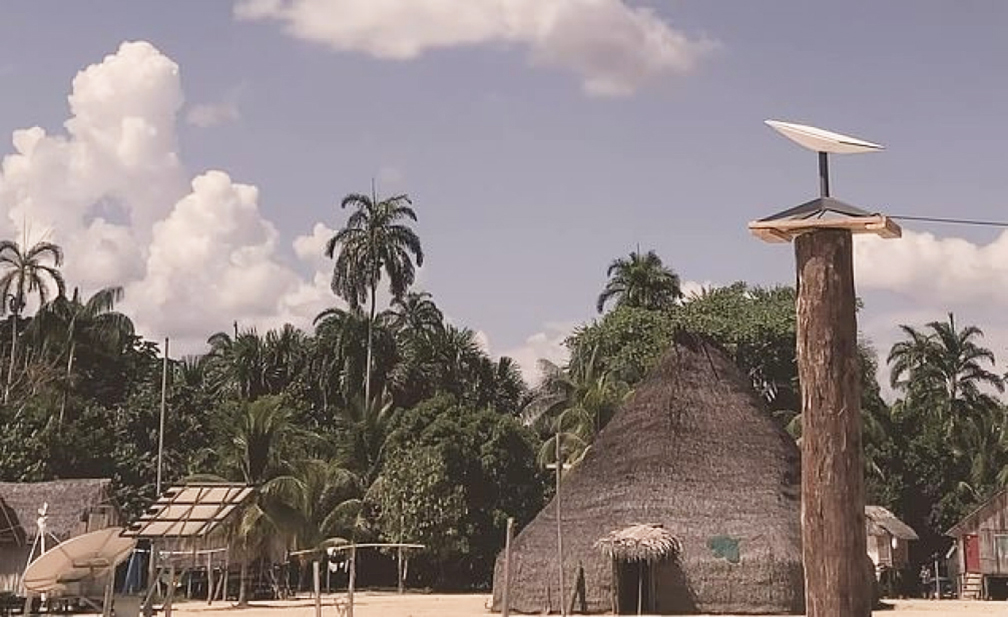A recent New York Times story covered how the Marubo people of Brazil were adjusting to life with the internet. They had received Starlink only months earlier, and according to the NYT piece, it had introduced serious problems into their society. Chief among those was “minors watching pornography.”
Representatives of the Marubo people took issue with the story and the tabloid headlines it spawned on sites like TMZ and Yahoo. They claimed it was not just insulting and inaccurate but damaging in an actionable way, so they took legal action.
The Marubo community just filed defamation charges in an LA court, seeking $180 million in damages from the NYT, TMZ, and Yahoo.
The story that sparked it all
The Marubo people number about 2,000 in all. They live in villages along the Ituí River of the Javari basin. Their population has steadily grown over the past 50 years, coming back from the disease and violence of first contact in the 19th century.
In 2022, the Marubo tribe received 20 Starlink antennas thanks to the efforts of community leader Enoque Marubo and Brazilian activist Flora Dutra. Nine months later, Jack Nicas hiked through the jungle in order to visit the tribe and report on how the internet was affecting them. The tribe invited him to stay for a week, but Nicas left after about 48 hours.
He did not mention his early departure in the NYT piece. Published in June of 2024, the article claimed that the Marubo were now struggling with “teenagers glued to phones; group chats full of gossip; addictive social networks; online strangers; violent video games; scams; misinformation,” and, of course, pornography.
Classy as ever, TMZ took the story and ran with it, publishing a piece titled Tribe’s Starlink hookup results in porn addiction! Similar headlines echoed across the internet. Realizing the narrative had perhaps gotten away from him, Nicas published a follow up: “No, a remote Amazon tribe did not get addicted to porn.”
For Morubo representatives, it was too little, too late.

The Marubo people live in villages in the Amazon basin. Photo: Shutterstock
A global media firestorm
According to the complaint, the news story and the dozens of salacious articles that followed damaged Enoque Marubo and Flora Dutra personally, as well as the tribe as a whole. It was they, after all, who introduced the internet. And they were the ones receiving the most online abuse. They claim to have received thousands of hateful online messages. These included “death threats, racist and misogynistic abuse, and reputational smears.”
They allege that the articles launched “a global media storm” that subjected them to “humiliation, harassment, and irreparable harm to their reputations, safety, and standing both within their own people and on the world stage.”
The New York Times agreed that other outlets had incorrectly reported on the story. But they had never averred that the Marubo people had become addicted to pornography, the outlet insisted.
Maybe so, the suit alleges, but their initial story had at the very least struck the match that became the firestorm.

Dutra arranged the Starlink gift through her startup, Navi Global. Navi Global no longer exists, which the complain alleges is a direct result of the negative coverage. Photo: Navi Global
A damaging narrative
The NYT story has uncomfortable echoes with past representations of Indigenous people. There are centuries of patriarchal depictions of Indigenous people as falling from Edenic innocence to debauched ruination as soon as they encounter the sins of Western civilization.
See, for instance, the “noble savage” of 18th-century philosopher Jean-Jacques Rousseau. He described Indigenous people in the Americas, the Caribbean, and Africa as living in an ideal state of nature. But when they encountered civilized men, they fell from this state of grace, and struggled to cope with the vices and complications of “civilized” life.
The English writer and explorer John Lawson wrote that in Carolina, “Most of the Savages are much addicted to Drunkenness, a Vice they never were acquainted with, till the Christians came amongst them.” Recent reporting on the Marubo discusses their internet usage in similar terms.
“These statements were not only inflammatory but conveyed to the average reader that the Marubo people had descended into moral and social decline as a direct result of internet access,” the complaint alleges. “They directly attack the character, morality, and social standing of an entire people, suggesting they lack the discipline or values to function in the modern world.”






